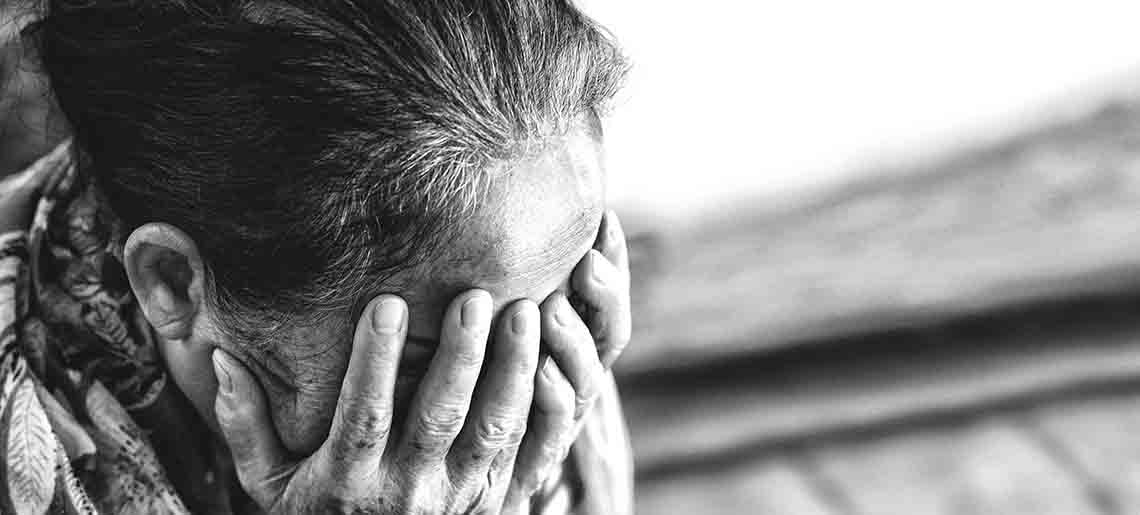Contact Us




There is a certain social stigma that is still attached to mental health issues with elders. As a result, they are less likely to speak up about their problems in fear that people may not understand what they may be going through. In addition to this, declining mental health in senior citizens is often written off as the price of age. A statistical study showed that 20% of elders above 55 years of age struggle with mental health problems in Elderly, but only 2-3% of them get the care they need. Hence, it is necessary to give attention where required and address these illnesses.
People should understand that mental health issues are not signs of weakness, failure, or character flaw. Some of the most common causes for the onset of elderly mental health issues are:
Physical health – With older age, it is common to experience or witness a decline in several physical abilities. Physical abilities decrease at a much faster rate without regular exercise, and when these difficulties develop, it becomes challenging to exercise. These changes can be extremely frustrating and lead to depression and anxiety.
Isolation – It is normal for children to grow up and leave their homes when they go to college, work or get married. During these times, the separation can be very taxing on the parents’ mental health as they feel increasingly lonely. Elders are most often left on their own after the children leave, and their longing to see their children and grandchildren leads to the onset of depression.
Loss of dear ones – As the sunset years approach, elders begin to lose loved ones. It is never easy to lose friends and family, no matter how old you may be. However, this becomes a relatively frequent in old age.. They may also have to cope with their loss all by themselves which leads to depression and anxiety.
Declining memory – Losing memory can be frightful and traumatic. Elders may begin to forget people’s names, place essential things and even forget whether they have taken their medicines. All these things begin to instil fear and leave them feeling anxious about diseases like Alzheimer’s and Dementia.
Insomnia – Sometimes, the body has unused energy, which makes it more challenging to fall asleep. Sleep allows the body to recover and reset itself. When there is a lack of exercise and reduced activity in old age, it may be come difficult to get a good night’s sleep. This can lead to anxiety, restlessness and depression among elders.
Depression and Anxiety – Depression is one of the most pervasive mental health issues that people of all ages face. If it goes undiagnosed and untreated, it can affect the person’s general functioning and interfere with their ability to interact and communicate. If depression is identified and taken care of, it can be treated and cured with ease.
The most common way for depression cases to be worked through is through psychotherapy. Since every person is unique and struggles with different reasons resulting in their depression, therapy allows them to vocalise their grievances. It helps the therapist understand the problems better and offer the most effective support. Self-help and support groups are another method to combat depression. It can be very reassuring for elders suffering from depression to realise that they are not alone and that there are people who can relate to similar issues.
Antidepressant medications can also be prescribed to elders by their doctors.
They help cure clinical depression and alleviate pain and social anxiety. Despite this, people should only resort to this option when depression is classified as severe. It is because antidepressants tend to have side effects that hinder other body functions and may result in problems.
Dementia – Aside from depression, Dementia is another prevalent mental health issue faced by elders. Different diseases cause Dementia, and hence, it is unlikely for a single cure to exist. However, there are ways to aid an elder with Dementia. Cognitive stimulation can help elders engage and perform everyday activities and function optimally to maintain independence as much as possible.
It is prevalent to see elders being neglected or even considered a burden, but this will only cause a faster decline in their mental health. It inevitably affects them and leads to other chronic illnesses. To avoid the domino of health problems, proper care and consideration of mental health are vital. Stay calm and patient when caring for someone with mental illnesses. It is crucial to have a polite way of communicating with them. Allowing them to become comfortable with you is the primary way to care for them.
Encourage them to talk to you or with a professional regarding anything that may be bothering them. Sensitivity and empathy are essential. Taking care of anyone with mental health illnesses is not simple or easy, but their psychological problems deserve as much attention as any other issue.
About us
Samvedna Care is an initiative to provide quality health care services to senior citizens. From providing home attendant for elderly to counselling for anxiety in elderly, we do it all. Our workforce specializes in elderly healthcare services in Delhi NCR and we also provide online counselling for elderly and physiotherapy services for seniors in Delhi. We cater to various mental health issues faced by elderly and offer family counselling, elder care family counselling, caregiver counselling, elder care counselling and much more.